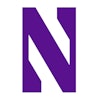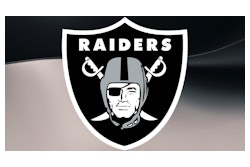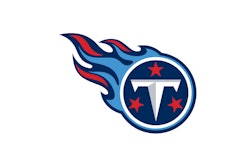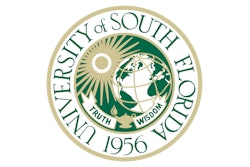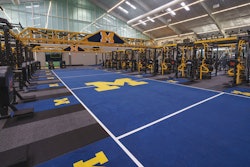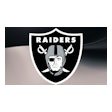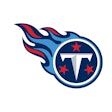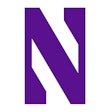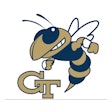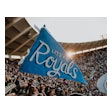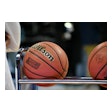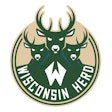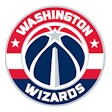In Holland, the price of flowers starts high and drops the longer it takes to sell them. It's been that way for more than a century. But not until this year did that sales approach inspire Northwestern University economists and, in turn, athletics administrators, who believe their suburban Chicago institution is the first in this country to use a Dutch auction to price and sell game tickets. ...
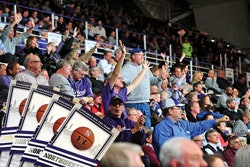
In Holland, the price of flowers starts high and drops the longer it takes to sell them. It's been that way for more than a century. But not until this year did that sales approach inspire Northwestern University economists and, in turn, athletics administrators, who believe their suburban Chicago institution is the first in this country to use a Dutch auction to price and sell game tickets.
"This is brand new," says Shawn Sullivan, director of marketing for NU athletics. "I don't think anybody has ever tried this before."
At least not until the weeks leading up to a Feb. 28 men's basketball game against No. 16 Ohio State, when Northwestern officially launched Purple Pricing. Despite the fact the Wildcats hadn't won a game in nearly a month, a limited number of single-game tickets were made available at $70, or double their normal price. "We had fans buy tickets from us at $70, and we've never sold a ticket above $40. So it shows that there are fans out there who value it that high," Sullivan says. "Are our prices too low? Maybe they are. They are the lowest in the Big Ten, in the biggest market. You can keep going down the line as to what the reasons are - whether it's our arena, our history, our competitiveness - but this has shown us already that even if we don't continue with Purple Pricing, we at least need to look at pricing certain games at certain levels."
No Risk
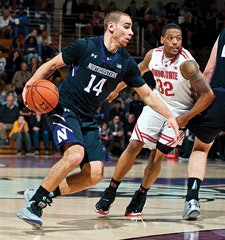
Unlike the Holland flower buyers, those who jumped into the NU auction early at full price were at no risk of getting gouged or, for that matter, paying even slightly more than anyone else. That's the part of Purple Pricing that deviates from a traditional Dutch auction, according to NU professor of managerial economics and decision sciences Sandeep Baliga, who along with faculty colleague Jeff Ely pitched this pricing approach to the athletic department. The so-called Purple Pledge assures ticket buyers that they will be refunded the difference between their own purchase price and the price at which the auction ultimately bottoms out (either when the last fan who is willing to buy does so, or the last available ticket is sold.)
"We've basically added the Purple Pledge part - the price guarantee," Baliga says. "You click the 'Buy Now' button, and you're guaranteed a seat, and if the price goes down, you're also guaranteed a lower price in the end."
And unlike the secondary market, where fans risk getting shut out of a game if they wait too long for bargain prices, the incentive to jump into Purple Pricing early is to guarantee the best seat available in NU's inventory - again, at zero risk. "There's no reason to game the system. There's no reason to wait around, because it doesn't matter. Everybody's going to pay the same price," Sullivan says. "I think that's an interesting piece to this, because with dynamic pricing, you may have purchased a month out, at X price, and then you have another fan sitting next to you who purchased three days out from the game and it's a different price. And it's not fair."
Turns out the individual ticket price for the OSU inventory dropped to $38 by game day, meaning those who bought at $70 received a notice from NU the following day stating that a refund (in this case, of $32) had been applied to their credit card account. Likewise, every purchase price in between was refunded accordingly. The game, which Ohio State won, 63-53, drew 7,036 fans to 8,117-seat Welsh-Ryan Arena. A second trial of Purple Pricing - applied to a March 7 game against Penn State, which that night earned only its second Big Ten victory against 15 losses - saw prices drop from a $28 starting point (based on anticipation of a comparatively lower demand) to $20. The game drew 5,517.
Early Learning
Northwestern officials are not making public any more hard numbers from the Purple Pricing experiment, such as beginning inventory for each game or how many tickets were actually purchased, and at which price levels, using the modified Dutch auction. Sullivan admits that the athletic department never expected to "cash in" on a mere two men's basketball games with limited inventory. For now, value comes in the form of intelligence gathered.
"We learn a lot about how much people are willing to pay to go to the game," says Baliga, who with Ely helped determine daily price adjustments, if any. "With dynamic pricing, suppose you're willing to pay 50 bucks, but you hang around and wait for the price to go down before you buy. You might end up buying at 20 bucks. For me, looking at the data, all I see is that you paid 20 bucks. I don't really know that you were willing to pay 50 bucks for the ticket. But with our Dutch auction, we have a much more accurate picture of demand."
Baliga and Ely, who collaborate on a blog called Cheap Talk, hope to coauthor research based on Purple Pricing, but perhaps only after "mega data" is gathered from a season's worth of auctions, Baliga says.
"At the end of the day, we're trying to figure out how to properly price our events," Sullivan says. "For higher-demand games, can we maximize revenue and create a fair point where fans feel comfortable working with us versus waiting to go to the secondary market? If you look this year at our Indiana game, they were No. 2 in the country, and we sold out of single-game tickets in a heartbeat - less than 10 minutes. We weren't ready for it, but if we would have done this process with that game, I think we would have made a lot of money. And the fans would have felt okay about it, because the secondary market would be dictating three and four times what those tickets actually cost when they were bought from us."
'It Makes Sense'
Football may be next in the experimental pecking order, but with a ticket inventory closer to 50,000, logistics are a concern. Northwestern would like to get its ticketing software partner Paciolan more directly involved if Purple Pricing is to see large-scale implementation, whether that means more games or entire seasons. (A Paciolan representative told AB that the company is supportive of individual client ticketing initiatives and that it is aware of Northwestern's Dutch auction experiment and monitoring the results.)
Interest, in general, is widespread. Purple Pricing has been covered by National Public Radio, Harvard Business Review and Time magazine. A Feb. 11 release ranked among the top-viewed pages on Northwestern's own nusports.com for weeks, according to Sullivan. "I think people are interested in the theory behind it," he says. "There have been a lot of question marks on this. There's still a lot of data to come about. I think much more is needed than just two basketball games with limited tickets, but as a starting point, people are like, 'Yeah, it makes sense.' I think we were just excited to do something that hasn't been done before and learn from it."














